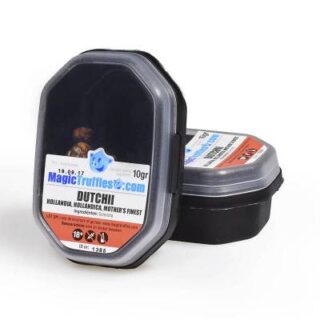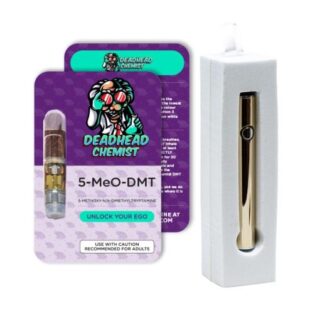Buy Shrooms Online in the U.S.
A growing number of online magic mushroom vendors are cropping up in the U.S. and Canada in anticipation of drug law reform, echoing the early green rush. With many posting on Instagram and TikTok—and some even paying influencers, putting out press releases, and hiring PR firms to get them coverage in the media—psychedelic advocates wonder how these pioneers will set the stage for a future psychedelic market and if authorities will care enough to shut them down.
Some of the most brazen illegal shroom dispensaries in the U.S. and Canada may have had their shopfronts raided by the authorities in recent months, but the long arm of the law may have a harder time reaching the seemingly growing number of digital-only outlets. Especially where psychedelics have been decriminalized.
Police would need to be determined to go after them, since it would be more difficult than closing storefront dispensaries, says attorney and entrepreneur Jon Dennis from Sagebrush Law. “It will be interesting to see how motivated the drug war champions are. In jurisdictions that have decriminalized, conditions conducive to people doing things fairly boldly are created. [Operators are] able to get away with it, at least for a time.”
When culture changes, laws tend to eventually shift as governing bodies seek to avoid embarrassment and collect taxes. So with an Oakland psychedelic mushroom church that sells relatively cheap shrooms to its tens of thousands of members reopening last year (and recently announcing they’ll be expanding into San Francisco), plus a psilocybin cup taking place to rank the city’s best strains, it seems a logical next step for online brands to emerge and help service the demand.
Buy Shrooms Online in Colorado
Bliss Mushrooms is doing just that, offering psilocybin mushroom chocolate bars which, testimonials on the website say, contain 3500 mg of psilocybin mushrooms. “We have been in the psychedelic industry for 20 years,” the company told DoubleBlind in an email. “We have the largest voice in the underserved community. Bliss is the only psychedelic company that gives back directly to the inner city of Oakland, and we are not going anywhere.” The company put out a press release earlier this year, describing themselves as a “luxury psychedelic company” which “offers ultra-high quality psilocybin products that are vegan, gluten-free, non-GMO, and fair trade.”
Another California company, Psilouette, has stepped out of the shadows, too, with a boutique online store offering an array of luxury products. “Technically, nothing that we’re doing is legal,” founder Derek Chase, who also runs a CBD company, told Leafly. “We know full well that this goes against what the DEA would classify as legal … [But] from a constitutional perspective, the scheduling of drugs is completely illegal.”
“It’s not something that we think long-term they could penalize us for, but they could try and they could be successful,” he continued. “But we think the mission of the company keeps us in a less risky state because so many marketers out there are doing the same thing but in a less responsible way.”
This wave of shroom brands who are speaking publicly about their products—largely emerging in decriminalized jurisdictions— is relatively new in the U.S. For decades, of course, classic psychedelics have been available in the underground. In the last five years, however, there’s been an exponential increase in the number of underground brands professionalizing by creating brand identities and seeking to distinguish themselves from other products through novel delivery systems (i.e. a lozenge or vape pen as opposed to just whole psilocybin mushrooms) or unique formulations (like shrooms mixed with other functional mushrooms or herbs). During this time, there’s been at least a few dozen online shroom shops and brands gaining traction in Canada and, seemingly, getting away with it, but there haven’t been many gray market brands going public in the U.S.—until now.
“As when cannabis was converging with the mainstream, lovers and growers of cannabis tried to navigate a very complex, evolving, and soon-to-be-antiquated system of laws,” says Ariel Clark, an attorney who worked with early cannabis companies. “We see a similar struggle here with therapists, healers, clinicians, retreat centers, churches, and other stakeholders in the psychedelics ecosystem trying to navigate an evolving legal landscape and analyzing their own risk tolerance in the process.




Leave a Reply